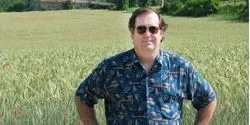News

Thermo Fisher Scientific and METTLER TOLEDO Introduce Integrated Titration/Ion Chromatography System
| 2 min read

Novel, biocompatible nanoparticles glow through more than 3 centimeters of biological tissue, demonstrating the promise of nanotechnology in biomedical imaging.
| 3 min read









